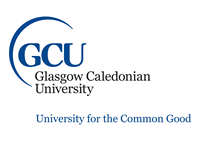Dr L Cameron, Dr U Shahani, Dr A Logan
No more applications being accepted
Funded PhD Project (Students Worldwide)
About the Project
REF SHLS-20008 Cameron
Glaucoma is a progressive optic neuropathy and one of the most common causes of visual impairment in ageing adults, where poor vascular perfusion in the eye is thought to be a causative factor .1,2,3
Diagnosis depends on recognition of characteristic structural deficits of the optic nerve head (ONH) and retinal nerve fibre layer (RNFL) as well as the gold standard functional test of standard automated perimetry (SAP) 4. A major challenge is the detection of the disease at an early stage as often structural deficits can occur much earlier than detectable visual field loss with SAP. 4
The consequent structural damage to and dysfunction of the ONH is attributable to localised vascular dysfunction. However, there is a growing body of research that suggests that deficits resulting from glaucoma are not confined to the eye alone but do continue further up the visual pathway. 5,6
This project aims to assess deficits in visual function that occur in glaucoma as expressed by changes in ONH perfusion and vascular parameters and establish any link with current clinical measures in glaucoma diagnosis.
We will investigate blood flow both in the optic nerve and in the brain; using optical coherence tomography angiography (OCTA) and functional near infrared spectroscopy (fNIRS). OCTA is a non-invasive imaging technique, permitting functional and structural assessment and images of the ocular microvasculature and retinal layers in the order of μm, thus enabling estimation of vascular perfusion at the ONH.7 fNIRS utilises near infrared light shone into the top layers of cortex; light binds to the “haem” part of haemoglobin chromophore concentration, divided into oxyhaemoglobin concentration [HbO] and deoxyhaemoglobin concentration [HbR]. Standard checkerboard stimulation will be used to elicit oxyhaemoglobin, which goes up when the stimulus is on and down when it is off. We expect that OCTA will identify reduced vascular perfusion at the ONH8 and fNIRS will show consequent reduced cerebral oxygenation6. These two measures will be correlated with the current gold standard clinical test for measuring functional loss, by SAP.
How to Apply
This project is available as a 3 years full-time PhD study programme with expected start date of 1 October 2020.
Candidates are encouraged to contact the research supervisors for the project before applying.
To apply for this project, use the following link to access the online application form, as well as further information on how to apply: https://www.gcu.ac.uk/research/postgraduateresearchstudy/applicationprocess/.
Applicants shortlisted for the PhD project will be contacted for an interview within four weeks from the closing date.
Please send any other enquires regarding your application to: [Email Address Removed]
Director of Studies Name: Dr Lorraine Cameron
Email: [Email Address Removed]
GCU Research Online URL: https://researchonline.gcu.ac.uk/en/persons/lorraine-cameron
2nd Supervisor Name: Dr Uma Shahani
Email: [Email Address Removed]
GCU Research Online URL: https://researchonline.gcu.ac.uk/en/persons/uma-shahani
3rd Supervisor Name: Dr Andrew Logan
Email: [Email Address Removed]
GCU Research Online URL: https://researchonline.gcu.ac.uk/en/persons/andrew-logan
Funding Notes
The studentship of £19,509 per year is for a period of three years, subject to satisfactory progress. The studentship covers the payment of tuition fees (£4,500 for UK/EU students or £15,000 for international students) plus an annual stipend of £15,009 for UK/EU students or an annual scholarship of £4,509 for international students.

 Continue with Facebook
Continue with Facebook

